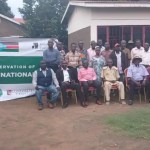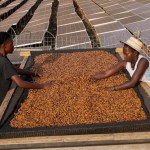(JUBA) — As South Sudan continues to recover from years of conflict and instability, the United Nations Food and Agriculture Organization (FAO) is promoting a peaceful alternative to violence: cooperatives.
These shared economic ventures are emerging across the country as a new way for young people to earn a living without guns.
In many parts of South Sudan, especially rural areas, youth face limited employment opportunities. For some, this has led to armed cattle raids or taking up weapons in exchange for survival and income. But according to FAO, the solution to this cycle lies in economic empowerment through cooperatives i.e. community based groups where members share resources, risks and profits.
These cooperatives focus on farming, fishing, food processing and other agricultural work.
Members can access better markets, equipment and training than they could on their own by working together. They also build trust and interdependence within communities, which FAO says is crucial in a country still healing from conflict.
Louis Bagare, an FAO representative based in South Sudan, told UN News that cooperatives are more than just economic structures. They are a foundation for peace.
“When young people join a cooperative, they are not just joining a business,” he explained.
“They are becoming part of a community that works together, supports each other, and leaves behind violence.”
The push for cooperatives comes at a time when South Sudan is facing growing challenges from food insecurity and climate change. Erratic weather patterns have affected farming yields, while inflation and rising prices have made daily life harder for most households.
In July 2025, 1,000 South Sudanese Pounds (SSP) is worth just about $0.22 USD, making income generating cooperatives even more urgent for survival.
Ahead of the International Day of Cooperatives on 5 July, the FAO has called for greater support for these grassroots organisations, especially in conflict prone areas. The goal is to scale up these models to offer youth a viable, sustainable alternative to armed activity.
Bagare noted that many successful cooperatives are already operating across Central Equatoria, Jonglei, Upper Nile and other regions. These groups often start with small financial contributions, local farming tools and support from aid agencies or local authorities.


















































